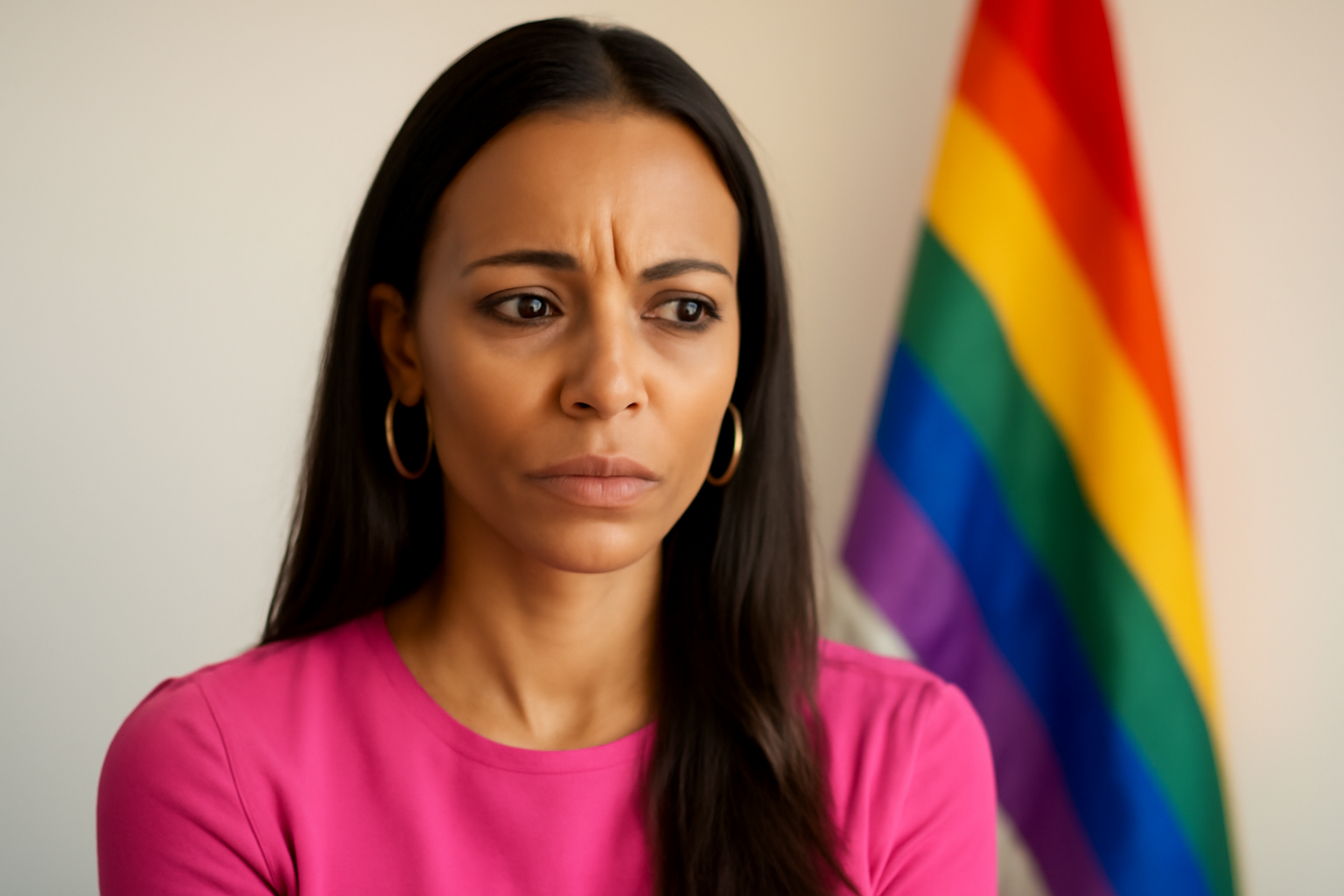
Recently, actress Zoe Saldaña found herself in hot water online after remarks about her upcoming film, "Emilia Pérez," sparked criticism from many in LGBTQ+ circles. Known best from her performances in blockbuster hits like "Avatar" and "Guardians, " Saldaña was chatting about her excitement and high hopes that her new movie could score some major award recognition when her comments started a firestorm.
Zoe Saldaña's Oscar hopes spark controversy
In an interview, Saldaña expressed her dream that "Emilia Pérez" could be in line as an Oscar contender. However, when she described an Oscar trophy as "trans" and said it would "go by they/them," it didn't sit well with everyone. Although her intention seemed supportive, many felt her words missed their mark or came across as insincere.
The backlash was immediate, with Twitter and Instagram users calling her out, urging her in effect, "Zoe, you might want a rethink here." The comments rolled in, with one user saying, "We get that you're trying, but gender identity isn't just a punch line." Others echoed these sentiments, expecting celebrities like Zoe Saldaña handle these conversations with a bit more thought.
Hollywood's dance with representation and sensitivity
Saldaña's misstep reignited broader discussions about how representation and sensitivity play out in Hollywood, especially when it comes from high-profile figures addressing gender and identity. Within LGBTQ+ communities, there's a clear message: while it really matters that we see ourselves represented, it needs handling with genuine care and comprehension.
Experts on LGBTQ+ representation underscore how critical authentic portrayals are in media. "It feels really good seeing more stories that actually reflect our diverse community," shared Dr. Jamie Rivera, a gender studies professor. "But it can't be surface-level or careless. Comments that seem off-the-cuff can easily dismiss all strides made."
Dr. Rivera also noted that while seeing allies stepping up can be heartening, engaging genuinely takes effort. "Listening, learning from missteps, and engaging with people who live these experiences truly count when you're trying be a real ally," Dr. Rivera stressed.
How Saldaña responded, and what comes after
Faced with criticism, Saldaña took her thoughts back online, trying reparations with an apology where she acknowledged that her words could've been better chosen. "If my words hurt, I'm truly sorry," she shared. "I'm committed not just learning but being a better ally. Thank you everyone who reached out, gave me perspective. I want this dialogue and I'm here growth."
While some welcomed her apology, others were more skeptical, seeing it as just another PR response. Yet, there's hope this incident might open more informed conversations about gender identity and celebrities roles as allies.
As we keep talking, here's hoping not only Saldaña but others in entertainment learn something from this. The whole incident showcases just how powerful—and responsible—public voices are in engaging with sensitive personal topics like gender identity.
The media's sway in gender perception
The media's role in shaping how we see gender and identity faces scrutiny, too. Coverage on Saldaña varied, highlighting how these narratives get spun and just how much news stories shape public views.
"Media can majorly sway how society interprets gender and identity issues," said Alex Kim, a media analyst. "It places a hefty responsibility on journalists and content creators, making sure they tackle stories with some depth and consideration, keeping in mind that their words pack weight."
As Hollywood keeps growing and changing, there's a big hope we'll soon see more inclusive storytelling that resonates with everyone, regardless where they come from. While mistakes come up, they're opportunities. They can teach everyone involved, from stars right down through our society.
To wrap it up, Zoe Saldaña's comments might've been off, but they highlight how essential ongoing dialogue around identity and representation remains—they're reminders that public figures must listen and learn in striving genuine inclusivity across media.
This moment offers us all a case study, helping us move towards a more understanding, empathetic view each other—and hopefully, fostering a more inclusive, respectful culture as we go along.
Related Posts
Olympic Speedskater Martina Sablikova Comes Out, Celebrating 12-Year Relationship
**Martina Sablikova: Olympic Star and LGBTQ+ Advocate** **Martina Sablikova, a three-time Olympic gold medalist**, has recently shared an important part about her life. After being together with fellow Czech speedskating champ Niky Zdráhalová, they've decided it's time people know about their 12-year-long relationship. They made this personal announcement in a touching Instagram post where Sabl [...]
Cynthia Erivo's Groundbreaking Role as Jesus Christ in Superstar: A Revolutionary Performance
Cynthia Erivo takes center stage in a daring role in "Jesus Christ Superstar" [...]
Dispelling Rumors: Lana Del Rey Did Not Tell Selena Gomez to 'Go Back to Mexico'
In today's whirlwind online environment, where social media shapes so much about how we connect and share information, checking if news stories are real or not has become super important. Recently, a rumor spread saying that singer Lana Del Rey made some harsh comments about fellow artist Selena Gomez. But don't worry—it turns out this was just another case where misinformation took off. ## How [...]